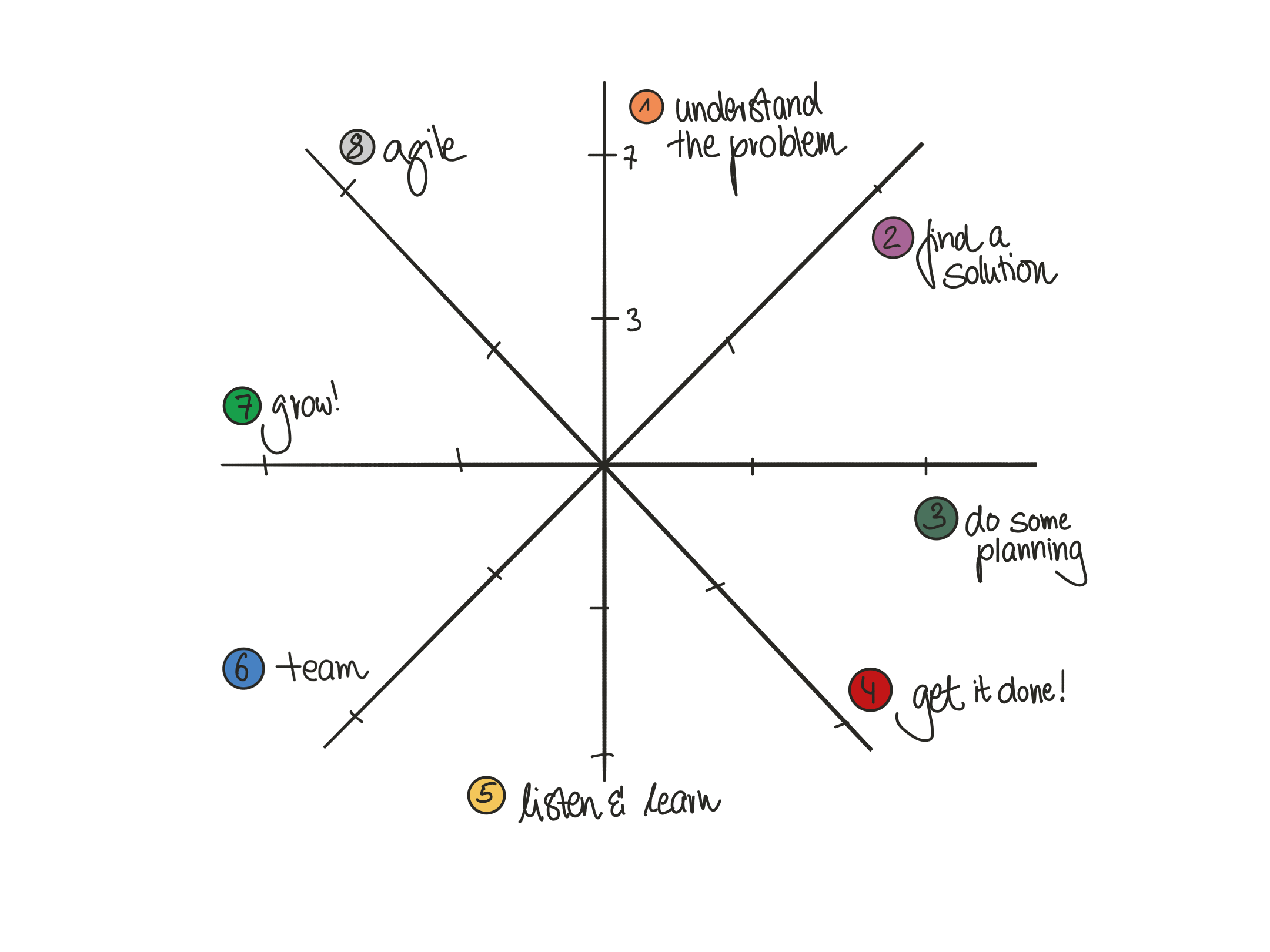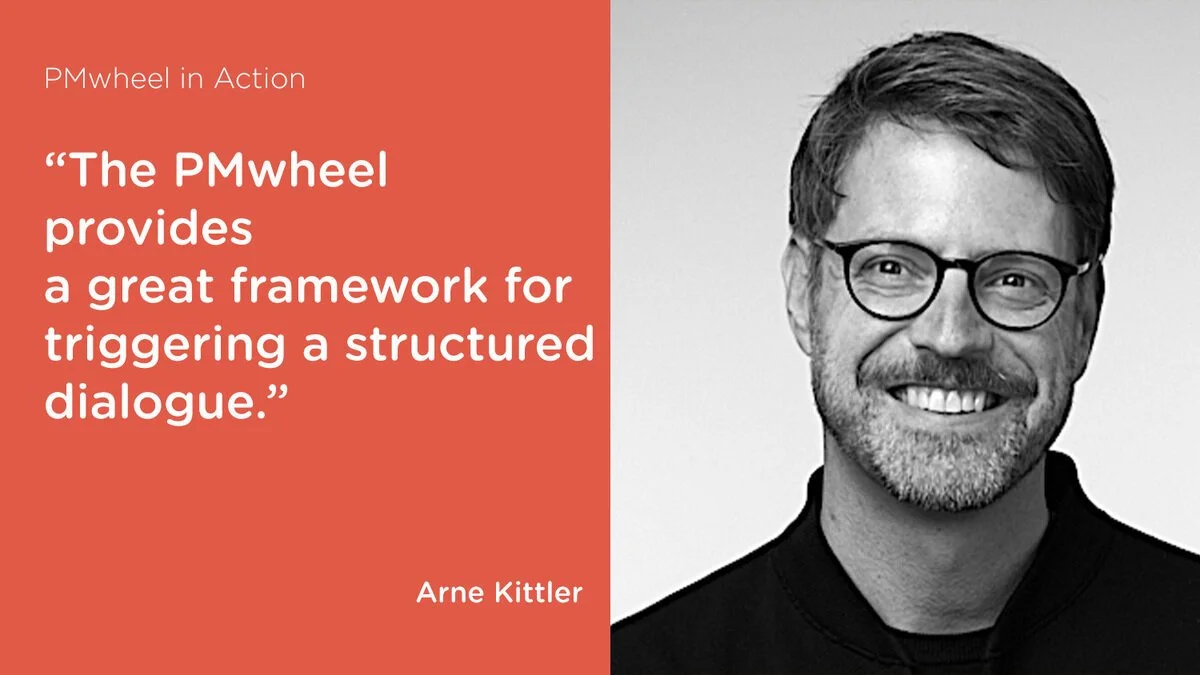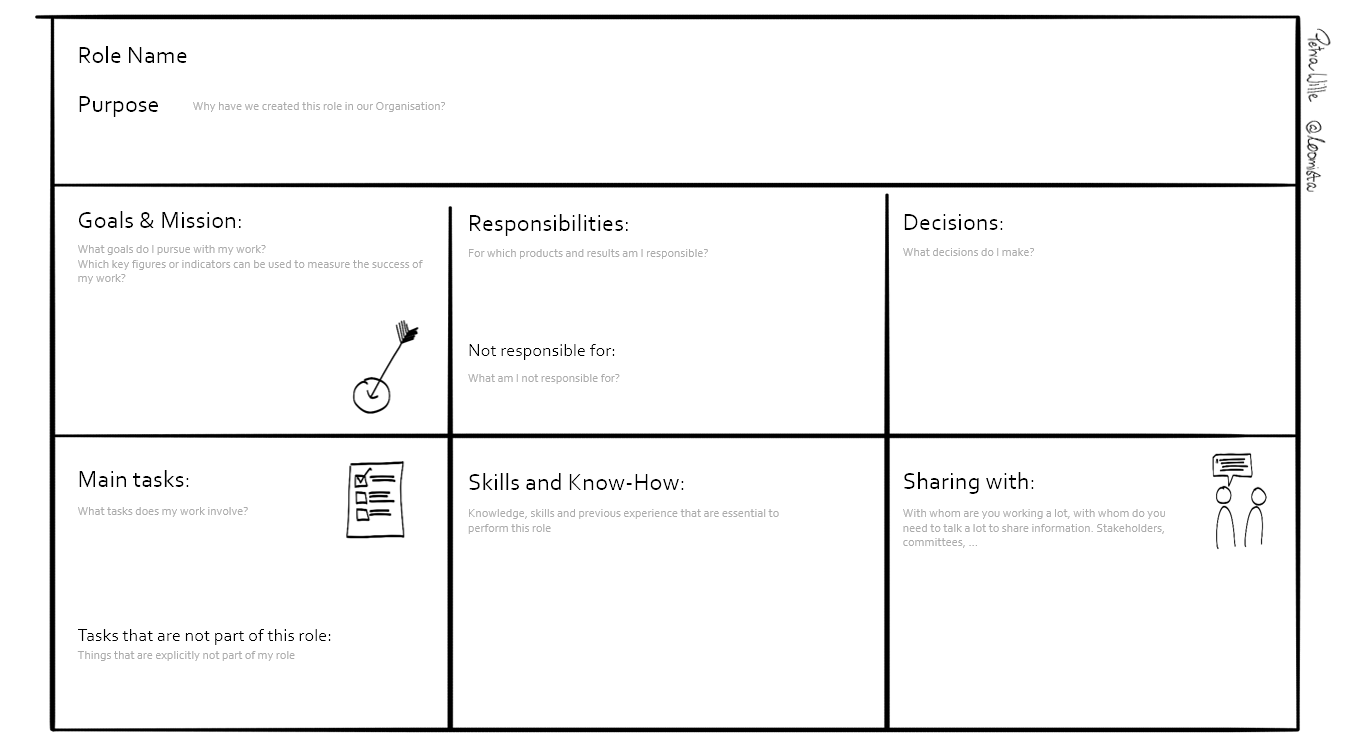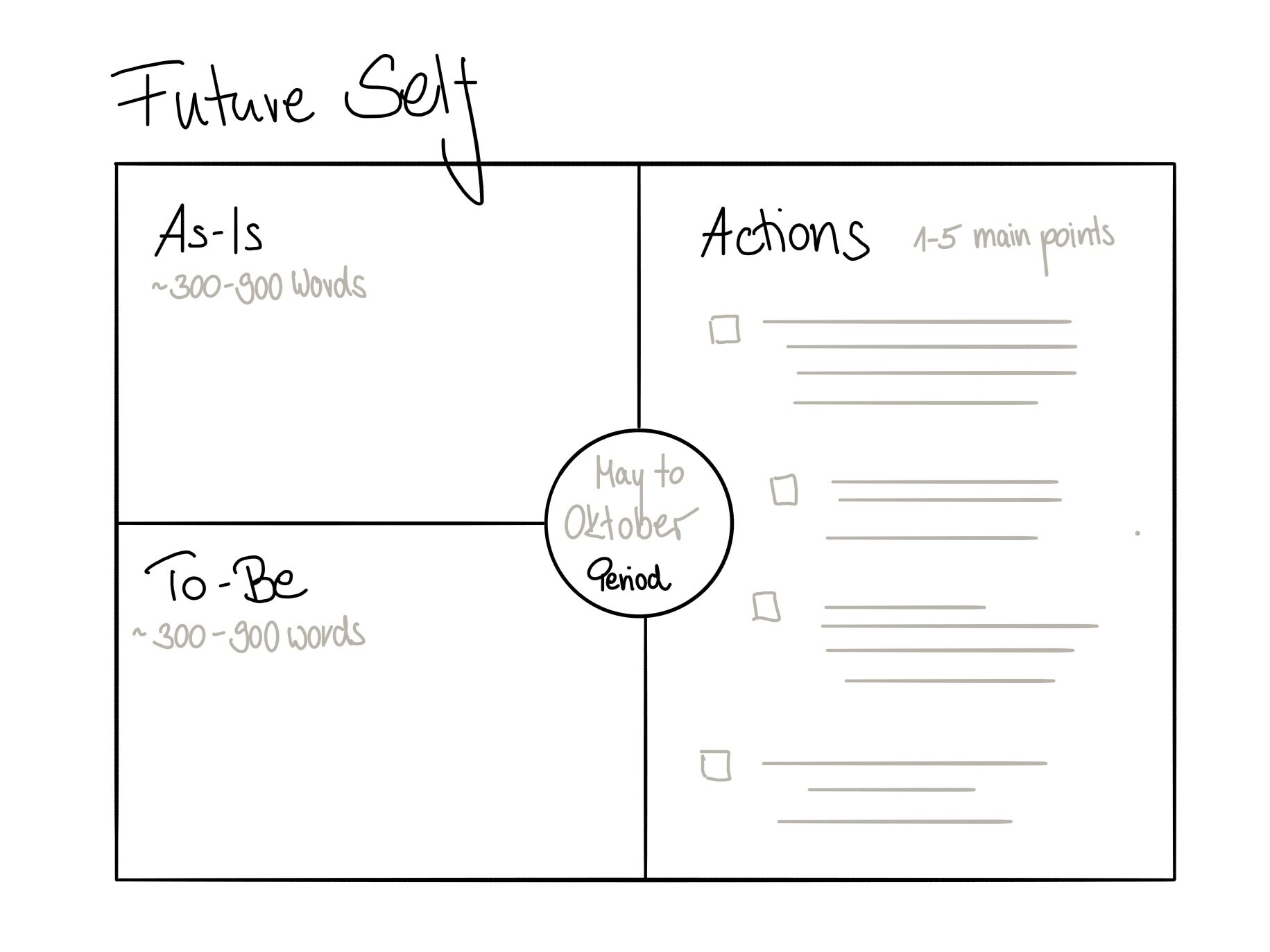PMwheel Framework - Free Downloads
Choose what you are interested in and jump there or download it directly.
Role Definition Canvas: If there is no written role definition create one – this canvas helps you to get there. read more or download role definition canvas.
PMwheel: The PM assessment to find the next best development topic for each PM. read more or download PMwheel: english | spanish | portuguese
Future-Self Canvas: A contract with themselves/yourself: use this after you have found your next best development topic to foster change. read more or download future self canvas.
The PMwheel – identifying gaps
The PMwheel will help you if
You are managing product people (head of product, product team lead, product director, CPO, …) and are searching for a framework that helps you fostering career conversations with your product managers and assessing your product people in a structured way.
You are a product manager seeking orientation. What should be your next best personal and professional development topic? This framework will help you to figure this out!
The 8 dimensions and what they are all about
Understand the problem. Is the product manager aware of the underlying user problems of the product they are working on? Does he understand the motives, issues, beliefs of these people? And has he thought about what the needs of the company/organization are when it comes to creating this product?
Find a solution. Did she found some good problems to solve? Great! Can she come up with some possible solutions and experiments for testing them?
Do some planning. No matter if you are a fan of good old roadmaps, or you know the latest Agile planning tricks, a PM must have a plan and a story to explain what’s next.
Get it done! Every PM needs to know how to work with her product development team to get the product out to the customer.
Listen & learn. Once you have released something new, you will want to observe if and how people are using it and iterate on the learnings to improve the current status.
Team. How good is the PM when it comes to teamwork? What does he know about lateral leadership and motivation of teams?
Grow! Is the PM investing some time in their personal growth as a product person?
Agile. Is she just living in the Agile world or do they fully understand agile values, principles, and ways of working?
The first five dimensions listed above are specific parts of the product-development process, while the remaining three are more general and not specific to product development. There is a detailed version of this with many guiding questions that can be very helpful in a career conversation available for download here.
Examples of some of the questions are:
Listen & learn: Can he talk about the current performance of his product at any given time? Can he describe experiments and quick testing methods to improve and refine his product in short cycles?
Get it done! Can she describe how she keeps the stakeholders in the loop while developing things? Can she describe her team’s take on software quality? How do they make sure everything works well?
How to use it if you are managing PMs
The PMwheel is a simple, but very powerful way to assess the responsibilities, skills, and knowhow of your PMs. Like snowflakes, no two assessments for your different PMs will be alike—some of your product managers will be stronger in one area, while others will be stronger in another.
The Initial Assessment – be prepared
When you assess your PMs (we will talk about how to do a collaborative assessment later), you’ll rate them on each of the factors on a 0-7 scale. If your PM has absolutely nothing to offer in, for example, "Get it done!" then he will rate a 0. If, on the other hand, he is the most amazing person ever in "Get it done!" then he will rate a 7.
After you have subjected all product managers to this assessment, it is important to look at the entire team again and make any necessary adjustments: Are all those who got a 6 in "do some planning" similarly good?
The Collaborative Assessment Meeting
Invite your PM to conduct the first collaborative assessment session.
Explain the framework
Ask them to rate themselves on each of the eight buckets in the PMwheel (you are prepared with your own PMwheel assessment of the PM).
Present your own ratings to the PM and explain why you selected those scores. Don’t just highlight shortfalls—be sure to let them know where you think they are already doing a great job!
Identify one area of improvement in this first session. Something small, something easy to learn or to change. You want them to succeed.
Ask them to use the “future self” template to come up with a detailed development plan.
Ask them if they would like to do this more often, and if so, how often?
Encourage comments and even pushback on your approach. Your PM might have valid points on how to improve your Good PM definition right away
How to use it as a tool for Self-Assessment
Assessing yourself: read all the questions and draw your very own spider web. Please note: Not all questions might be relevant for you or not all might have the same relevance. This depends on your company’s take on product management (empowered product teams vs. order taking feature teams), on your role description (rather technical PMs might rate low on the User Research bits) but this is fine. That´s why it´s so important to create the role description first. With this in mind, you can just cross out what doesn´t fit your role.
Do this with your line manager
Ask 1-3 peers for their opinion
You will end up with 1-5 spiderwebs and this usually speaks a clear language: there are one or two dimensions that are rated not that well and these are the ones you could focus your time and efforts on.
To do so you should come up with a development plan. Something that helps you commit to small actions that get you closer to the competent product management personality you want to become. I like to use the future-self template that origins from the book Traction by Gino Wickmen for this and you can download it here too.
If you want to learn more read my blog post about the PMwheel.
The PMwheel – a Compass for the Product Manager Development Journey - Read this!
How to use the PMwheel as a Self-Assessment Tool for Product Managers - Read this!
The PMwheel as a Manager of Product Managers - Read this!
Helping Your PMs to Reach Their Development Goal - The Follow-up! - Read this!
How Companies Are using the PMWheel
Learn more on how companies are using the PMwheel with these four cases. Click to read the full blog posts
Conversation with Sophia Höfling, Head of Product, Babbel
PMwheel in Action: Dynamic Updates from Lisa Mo Wagner and Jason Knight
A Conversation with Arne Kittler, VP Product at XING
And if you want to learn more about the practical adaptation of the wheel make sure to read my blog.
About the PM Wheel
I have created the PMwheel back in 2016 and I am using it ever since in my work with my clients. It’s a framework that helps heads of products to foster career conversations with their PMs. Over the last few years, I found out that many of my former coachees are still using the PMwheel after they have long left the initial company. They, in this case, are mainly using it as a tool for self-assessment in times where there is no line-manager helping them with their personal growth.
In 2020 I’ve decided to share it with a wider audience. First in my MTPCon break out session, now with the rest of the world. You can get your copy here or if you are interested in a more in-depth career conversation feel free to get in touch: info@petra-wille.com

PMwheel by Petra Wille is licensed under a Creative Commons Attribution-NonCommercial-NoDerivatives 4.0 International License
Role definition Canvas – Aligning expectations
As always with canvases, it´s not about filling the blanks. It´s about the process, the discussions you will have to come up with an agreed-on version.
If there isn´t something like this in your company: just start to create it.
If you are a product manager and you think your line manager or HR folks will not care about this too much I recommend you to do it anyways and start small: start by using it with your product development team. Try to come up with this Canvas filled out for your role but also for the Designer, Developers and so on. At the moment you start putting things on paper people will start to disagree and the magic starts to happen. That´s how you will gain more clarity on your current role!
Role description canvas
Future Self – Getting closer to the ideal
Let´s assume you have figured out what your next best development topic is (e.g. by using the PMwheel) you then should come up with something I would call a development plan. Something that helps you commit to small actions that get you closer to the competent product management personality you want to become.
I like to use the future-self template that origins from the book FYI: For Your Improvement published by organizational consultancy Korn Ferry. If you want to learn more read my blog post about the future-self template.








